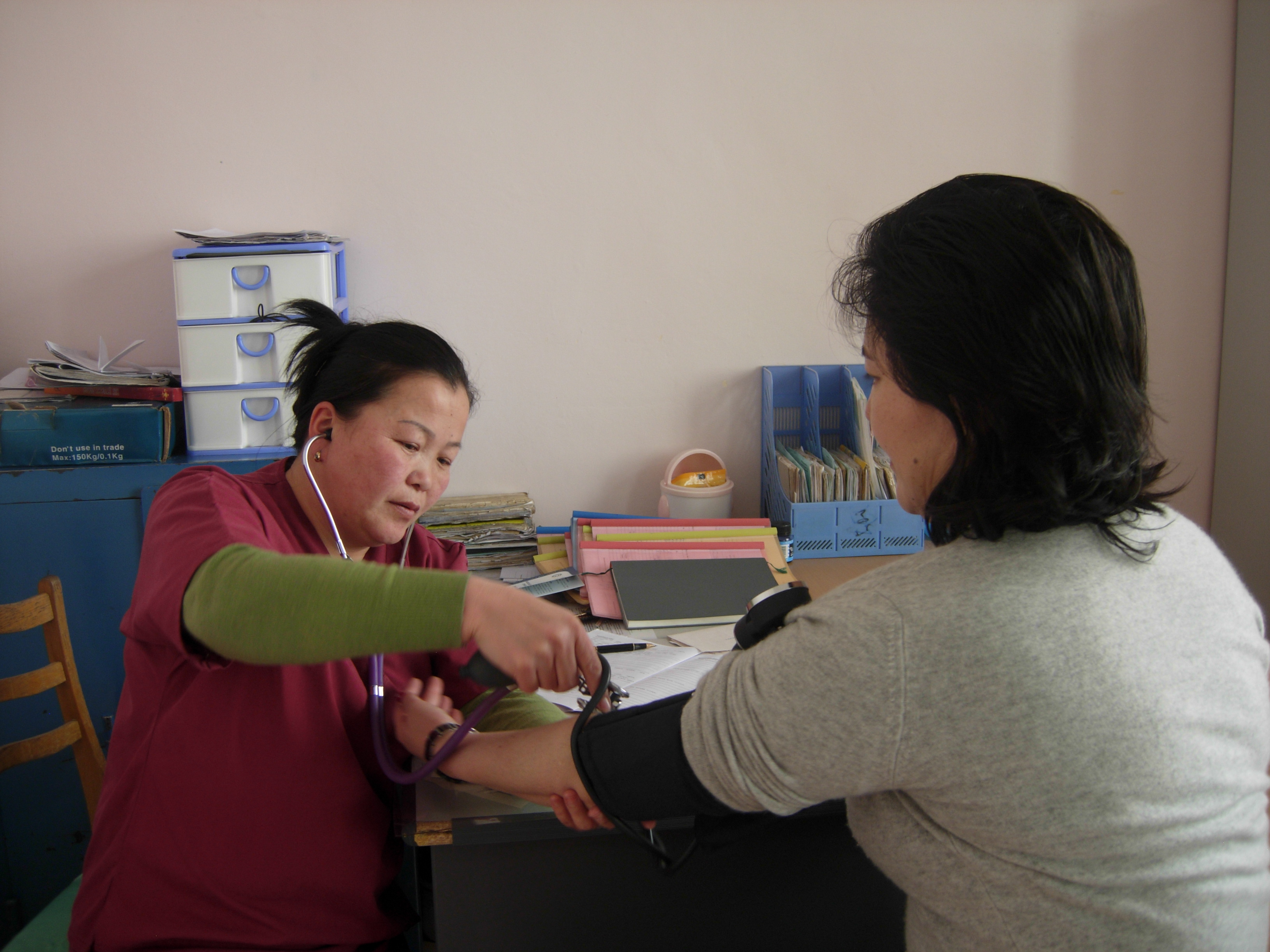
MCC
A healthcare worker in Mongolia measures the blood pressure of a patient as part of the Mongolia Compact that was signed in 2007. The compact worked with private industry to address the high and growing incidence of non-communicable diseases and promote better health for the country’s people, leading to a reduction of salt, sugar and fat in popular food brands.
Nutrition is foundational for development and intricately linked to all aspects of human growth and function, but the challenges to deliver a world without hunger remain daunting and complex. Research shows that in 2022, around 2.4 billion people—primarily women and residents of rural areas—did not have consistent access to nutritious, safe, and sufficient food.
Since 2004, MCC has invested more than $5 billion in programs to address the many sources of food insecurity around the world. Now, the agency is excited to share a new resource that supports taking a nutrition-smart approach to development programs, across a wide range of sectors—the MCC Nutrition Investment Toolkit.
The enormous development challenge of eliminating global hunger is rarely straightforward—it is driven by an interconnected web of components that must be addressed through a holistic, development approach. For example, energy projects may boost access to electricity and allow improved food storage and preservation, enabling families to eat a more nutritious diet year-round; projects that reduce greenhouse gas emissions may improve resiliency to climate shocks that threaten food security and nutrition; agriculture projects that support food processing and packaging facilities, can lead to increased availability of fortified foods.
On the other hand, projects designed without thought for the impact they have on nutrition may have unintended consequences—a new road may increase transport of agricultural commodities but lead to more nutritious products going to distant markets and reducing consumption at home; increased incomes may lead to increased consumption of low-nutrient, processed foods leading to weight gain, obesity and associated chronic diseases; a processing plant can contribute to environmental pollution that can contaminate air, water, and soil, impacting resulting crops.
With that complexity in mind, the MCC Nutrition Investment Toolkit provides project designers a powerful resource to use when considering how to incorporate nutrition benefits in projecting poverty reduction and calculating a project’s economic rate of return. When interventions are intentionally designed to improve nutrition or mitigate negative impacts on nutrition, the economic and poverty-reduction impact can be significant. For example, a nutrition sensitive education program that aims to enhance women’s education will also reduce chronic malnutrition in children; providing farmers who use irrigation with nutrition-focused social and behavior change will improve dietary diversity; and constructing a road that targets the transport of perishable items like fruits and vegetables will reduce post-harvest losses and preserve nutritional value.
The Nutrition Investment Toolkit is designed to help MCC teams and others in international development shed light on a systems approach to project design. This approach ensures that interventions across sectors with the potential to improve nutrition do just that.
Three guiding principles across the toolkit tie into this approach:
- Involve individuals with nutrition expertise and include data and evidence on the determinants of nutrition outcomes early in the project design and development process.
- Add an explicit nutrition objective, where relevant, as a signal for project implementers to continue to maximize nutrition impact throughout the investment lifecycle. The objectives should be linked to specific short- and medium-term outcomes (e.g., maternal and child dietary diversity, exclusive breastfeeding, consumption of fortified food vehicles, etc.) that are incorporated in the monitoring and evaluation plan.
- Use an impact pathway approach, building on existing evidence, to help identify different program entry points across all sectors that can play a role in improving nutrition status.
Those in the international development space can use this Toolkit to understand how to better design nutrition-sensitive and nutrition-specific interventions that contribute to both economic growth and improved nutrition. The Toolkit provides the rationale for investing in nutrition and shows how nutrition sensitive education, water, sanitation, hygiene, and especially agriculture projects can be designed to create positive nutrition effects. The Toolkit also provides guidance on monitoring nutrition projects and calculating the economic rate of return.
As the world recognizes World Nutrition Day today on May 28, 2024, this new MCC tool can help design better projects that will improve nutrition intentionally while reducing poverty through economic growth.

